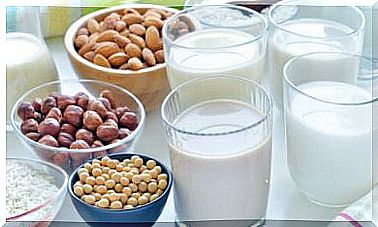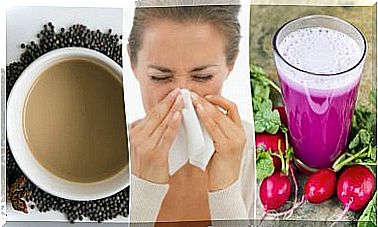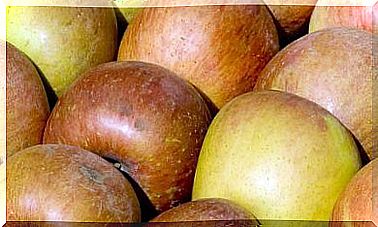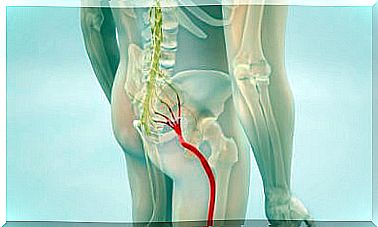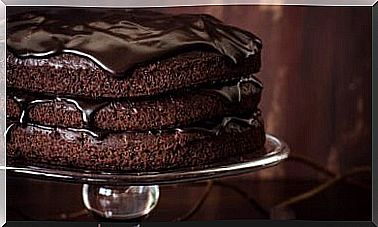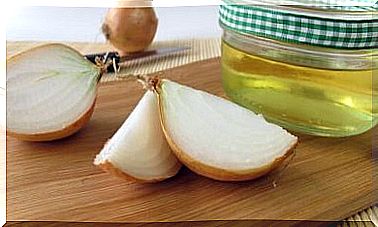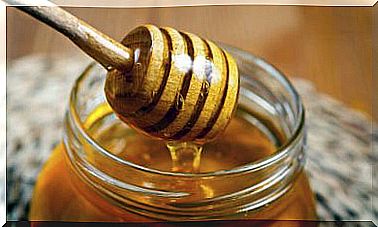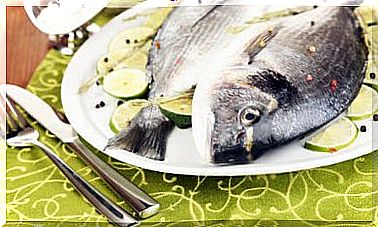Basic Supplements To Keep Your Skin Hydrated And Healthy
Foods that contain vitamin A, such as meat and dairy products, contribute to healthy skin. We will tell you more about it below.

It is normal that we want to show off a hydrated and healthy skin with the naked eye. However, when we decide to substitute healthy food for the one that is easier to obtain or prepare, we are moving away from our goal.
Nowadays it is common for people to make an effort to obtain – through diet – the adequate amount of vitamins and minerals. The latter could help keep the skin hydrated and healthy, giving it shine and better texture.
According to this study published in the journal Elsevier, some foods contain vitamins, minerals and antioxidants that could help reduce the effect of free radicals in cells.
Next, we will discuss some supplements that could help keep skin hydrated and healthy.
Vitamin K
Vitamin K, according to this information from the National Institutes of Health, is a nutrient that the body needs to be healthy. It is important for blood clotting, bone health, and other body functions. Likewise, it can help keep the skin hydrated and healthy. When combined with vitamin A in serums or creams, it could help reduce dark circles and bags under the eyes.
Some sources of vitamin K are:
- Broccoli.
- Eggs.
- Fish.
- Cereals.
- Green leafy vegetables.
Vitamin A
![]()
According to this information from the National Institutes of Health, vitamin A is a fat-soluble vitamin that is found in some foods. It is important for normal vision and the immune system. In addition, vitamin A may help the heart, lungs, and kidneys work properly.
Vitamin A is recommended to keep the skin hydrated and healthy. By consuming an adequate amount you can help the skin to repair or regenerate itself. The basic diet of the human being provides the adequate amount of vitamin A, but in the cases of restrictive diets some supplement may be needed.
We can find it in some cereals, eggs, liver and milk. You can also choose to include a food supplement. For the latter, the following is suggested:
- Women require 700 micrograms.
- Men need 900 micrograms.
- Children between 300 and 600 micrograms (Depending on their age).
Vitamin C
According to this study from the University of Oregon, there is evidence to suggest that vitamin C could be a useful adjunct to conventional medical practice to reduce myocardial injury and arrhythmia. It could be beneficial if consumed after a heart procedure or surgery in patients with cardiovascular disease.
In the same way, the study explains that the vitamin can provide benefits regarding the brightness of the skin, making it look healthy and with better texture.
Some data of this vitamin that are shown in the study are the following:
- A severe vitamin C deficiency has been known for many centuries as a potentially fatal disease, scurvy.
- The recommended intake for smokers is 35 mg per day higher than for non-smokers. This is because smokers are subject to increased oxidative stress from the toxins in cigarette smoke and generally have lower concentrations of vitamin C.
- Some research explains that no association has been found between the level of vitamin C intake and the risk of developing hypertension.
Vitamin E
According to this study carried out at the Autonomous University of Mexico, vitamin E acts as an antioxidant in the body by helping to protect cells against damage caused by free radicals. The latter are compounds that are formed when the body converts the food we eat into energy. It could also help reduce the damaging effects of the sun on the skin.
Likewise, it explains that vitamin E can be found in foods such as:
- The liver.
- Egg yolks.
- The blue fish.
- Whole grains.
- Avocado and papaya.
- Milk and butter.
- Beans and chickpeas.
- Olive and sunflower oil.
- Green leafy vegetables.
- Chia and sunflower seeds.
- Nuts like peanuts, walnuts, and almonds.
Selenium
According to this information from the National Institutes of Health, selenium is important for reproduction, the function of the thyroid gland, the production of DNA and to protect the body against infections and damage caused by free radicals.
That is, when talking about the contributions and functions of vitamins A, E, C and K and selenium, there are some similarities. It is believed that a balanced diet contains the necessary amount of selenium that the body needs, so it is not necessary to add extra supplements, but to eat foods such as: nuts, fresh fish, garlic and some whole grains.
Vitamin B
Vitamin B is the biotin found in some foods and helps convert carbohydrates, fats, and proteins that you eat into energy. This nutrient, according to this information from the National Institutes of Health, is the structural base of the cells of the skin, nails and hair.
If the proper amount of this nutrient is not available, dermatitis and hair loss can occur. We find biotin naturally in foods like oats, eggs, rice, and bananas.
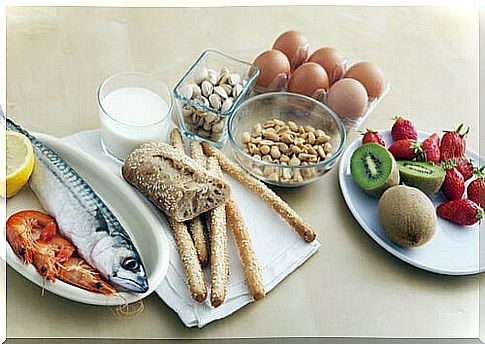
Bet on a natural diet
Some may affirm that thanks to some creams and lotions that can be found in the market, it is possible to keep the skin hydrated and healthy.
However, it is suggested to eat a healthy and balanced diet that allows you to incorporate quality foods that provide vitamins K, C, E, A and minerals such as those mentioned. In this way you can get the benefits of these nutrients for the skin. Then you can look healthier and more hydrated.

